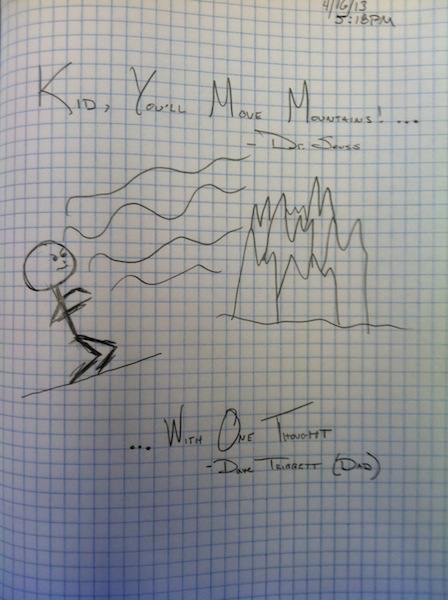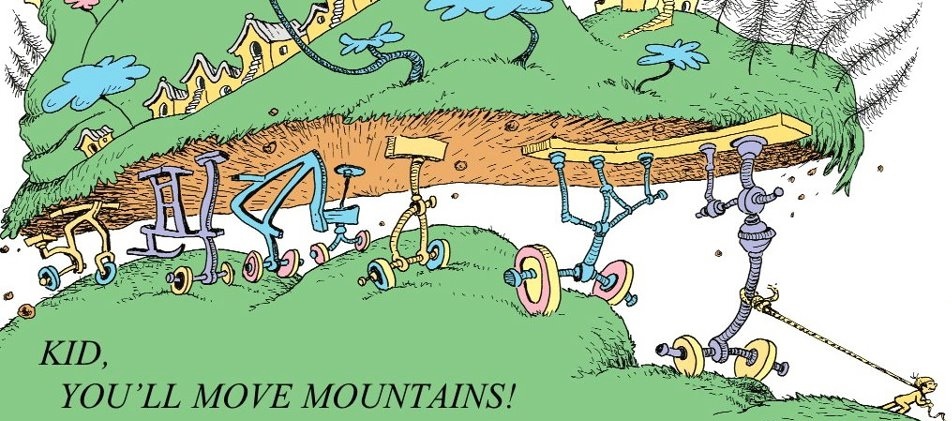Putting Out the Good Vibes
We’ve all been in situations where the awkwardness was palpable; situations where we could feel bad vibes. We’ve also been in situations that were harmonious and serene; situations where we could feel good vibes. These phrases - good vibes and bad vibes - represent something fundamental to human feelings: vibrations. Well, not vibrations per se, but waves, specifically brain waves that propagate from the brain at various frequencies - various vibrations. Everything we do, every interaction we have, influences or is influenced by these waves.

So here’s a question: Can we predict emotional, mental, and physical responses to various stimuli based on brain wave readings? Additionally, can we influence emotional, mental, and physical responses via brain wave manipulation? My hypothesis: Absolutely.
It’s an interesting question and I believe - to some degree - it’s completely possible to not only predict responses but also influence and manipulate those responses.
I got the idea a few weeks ago when a friend and I were trying to understand a circuit schematic. We were trying to grasp the effect of a variable resistor on voltage up-ramp time. As I began to understand the relationship, a pleasant feeling of calm took hold of me; I had reached a new level of understanding. And as I further grasped the relationship, my friend did too.
At first glance there might not be anything special about this event. However, peeling back the surface of this experience reveals something curious: the possibility of unseen influences in communication and interaction. After thinking about it, I hypothesized that those unseen influences are probably brain waves.
Okay that’s great but how can I test this hypothesis? How can I measure brain waves?
I’ve been thinking about these questions a lot. The first problem is figuring out how to measure brain waves. My friend Larisa recommended using Electroencephalography (EEG) which measures voltage fluctuations within neurons of the brain. These fluctuations have frequencies (vibrations) which generate brain waves. Awesome! Now I have way to measure brain waves. But how can I test if it’s possible to predict responses to stimuli from the recorded brain wave data?
So here’s an idea: With EEG I can measure the brain waves of a test subject under various experimental conditions. I can measure the brain waves generated in a relaxed state, an excited state, a state influenced by music or food or smell, and other various emotional, mental, and physical states. If my hypothesis is correct, then the more conditional states I measure, the better I’d be able to predict a test subject’s response to a newly given stimulus.
For example, if I measure your brain waves while you listen to various Led Zeppelin songs, I should be able to form a model of your brain to predict how you would respond to newly played Led Zeppelin songs. So if your brain gives off waves of happiness whilst listening to Stairway to Heaven or Kashmir, I would be able to predict that your brain will give off similar waves if I play When the Levee Breaks. Taking it one step further, if I know Led Zeppelin puts you in a happy state, and you are currently in an unhappy state, I could play Led Zeppelin to influence your behavior and put you in a happy state. A simple example but I hope it helps to explain the experiment to test my hypothesis.
I think it’s a cool idea and it’s something I want to learn more about. The possibility is fascinating: with a better understanding of these neural oscillations (brain waves), we can make strides in creating Brain-Computer Interfaces (BCI), understanding Cognition and Information Encoding, and curing brain disorders like Parkinson’s and Epilepsy.

Remember Dr. Seuss’ Oh, the Places You’ll Go? There is a phrase: “Kid, you’ll move mountains!” and I’ve always interpreted this phrase in the metaphorical sense. But after researching the potential of what these brain waves can do, I’m reminded of something my dad used to tell me when I was younger: “Eventually, Man will be able to move a mountain with one thought.” I was too young to appreciate my dad’s innovative thinking at the time, but now I’m beginning to see its worth and possibility.
Think about it for a while. And next time you’re out and about, try and put out some good vibes; the world could use some more good vibrations.